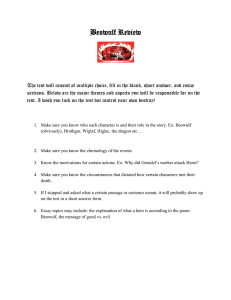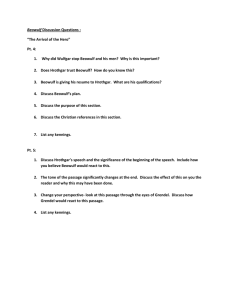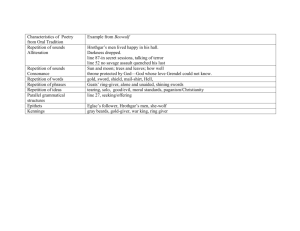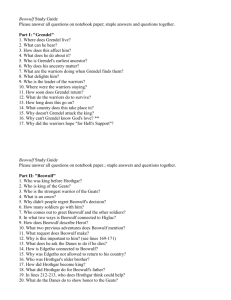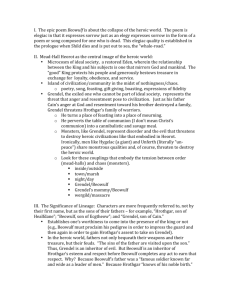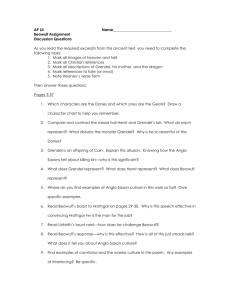Beowulf Study Guide: Terms, Characters, and Questions
advertisement
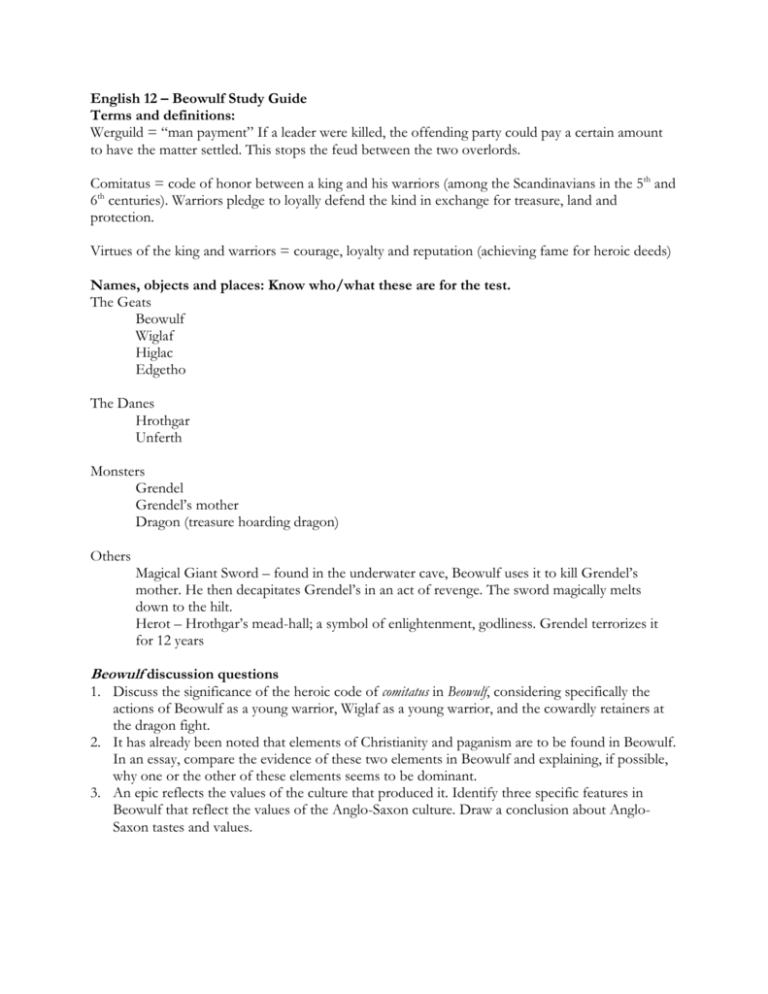
English 12 – Beowulf Study Guide Terms and definitions: Werguild = “man payment” If a leader were killed, the offending party could pay a certain amount to have the matter settled. This stops the feud between the two overlords. Comitatus = code of honor between a king and his warriors (among the Scandinavians in the 5th and 6th centuries). Warriors pledge to loyally defend the kind in exchange for treasure, land and protection. Virtues of the king and warriors = courage, loyalty and reputation (achieving fame for heroic deeds) Names, objects and places: Know who/what these are for the test. The Geats Beowulf Wiglaf Higlac Edgetho The Danes Hrothgar Unferth Monsters Grendel Grendel’s mother Dragon (treasure hoarding dragon) Others Magical Giant Sword – found in the underwater cave, Beowulf uses it to kill Grendel’s mother. He then decapitates Grendel’s in an act of revenge. The sword magically melts down to the hilt. Herot – Hrothgar’s mead-hall; a symbol of enlightenment, godliness. Grendel terrorizes it for 12 years Beowulf discussion questions 1. Discuss the significance of the heroic code of comitatus in Beowulf, considering specifically the actions of Beowulf as a young warrior, Wiglaf as a young warrior, and the cowardly retainers at the dragon fight. 2. It has already been noted that elements of Christianity and paganism are to be found in Beowulf. In an essay, compare the evidence of these two elements in Beowulf and explaining, if possible, why one or the other of these elements seems to be dominant. 3. An epic reflects the values of the culture that produced it. Identify three specific features in Beowulf that reflect the values of the Anglo-Saxon culture. Draw a conclusion about AngloSaxon tastes and values.
